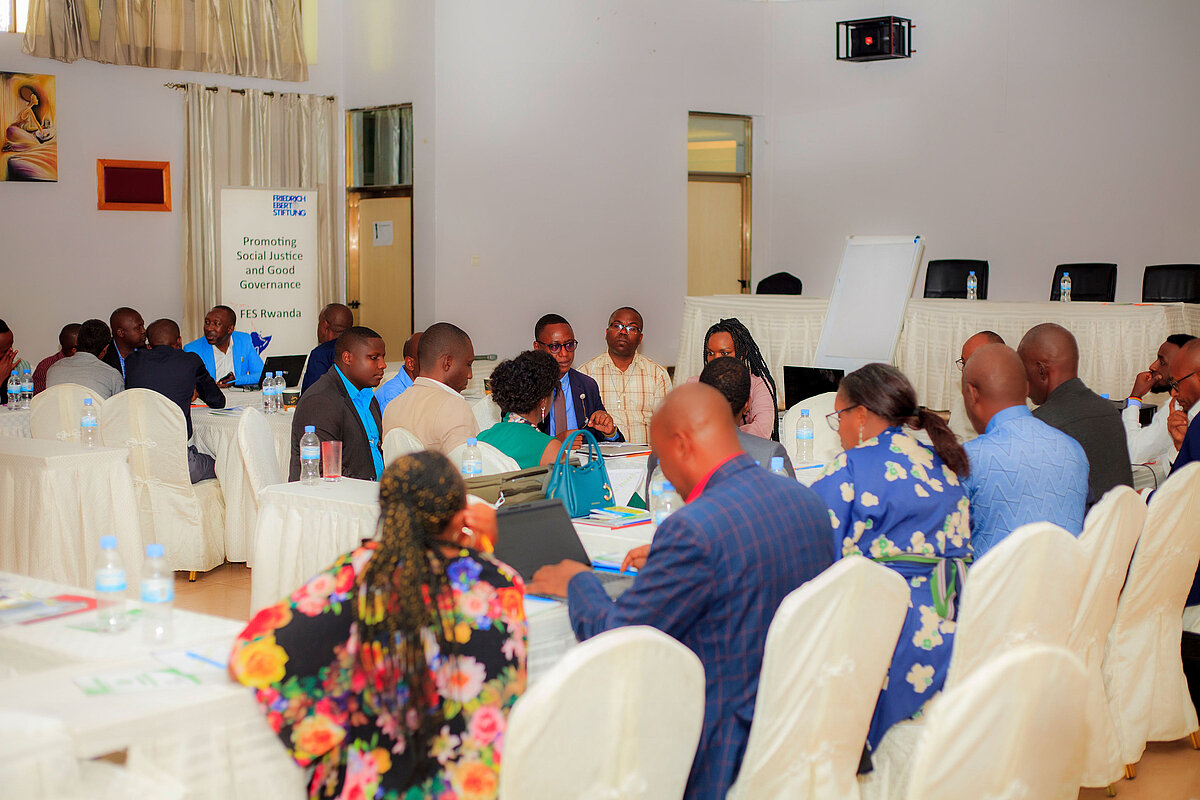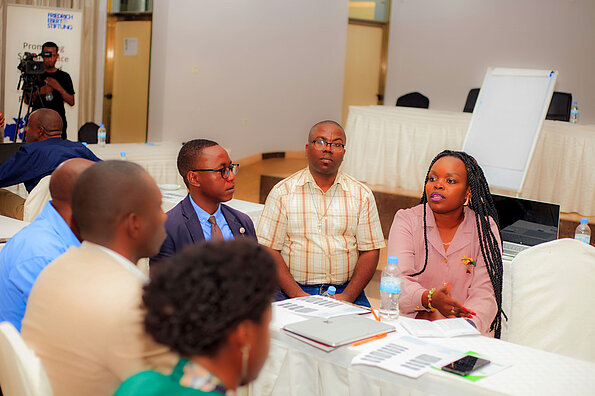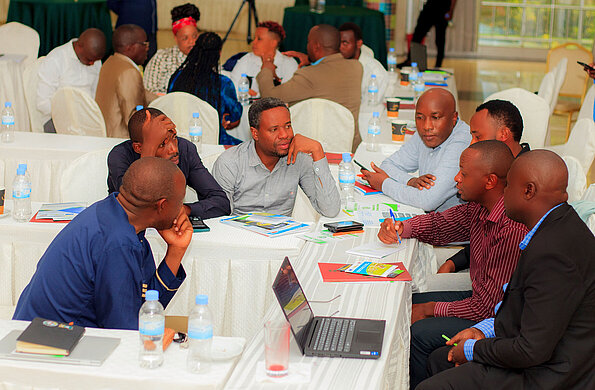National Conference on the Importance of Social Dialogue and Benefits of Collective Bargaining Agreements: Bringing Stakeholders together for a Change
The meeting was officially opened by Joseph Mwumvaneza, Project Officer Cotraf-Rwanda, followed by a brief introduction round of the participants. Subsequently, Consolatrice Uwingabire, Program Manager from FES Rwanda, provided insights into the project, its partners, and implementation of the project. She then underlined the importance of bringing together the difference stakeholders and proceeded by pointing out the core values of the FES Rwanda: “We fight against parochialism and inequality, and work for social progress that strengthens workers’ rights, and safeguards and ensures decent work.”
EU representative Eleanor Friel then emphasized the different reasons for sponsoring the project, as well as the urgency of creating more quality jobs for the Rwandan society.
Consultant Rusine Alexis then unraveled the profound significance of social dialogue and the myriad benefits associated with Collective Bargaining Agreements (CBAs). Alexis initiated the discourse by delving into the constitutional underpinning of social dialogue in Rwanda, underscoring its pivotal role as a core principle.
Different principles were discussed and identified as essential. Quoting the preamble of the Rwandan Constitution, Alexis emphasized the nation's commitment to building a state grounded in consensual and pluralistic democracy. This commitment, as articulated in Article 10's fundamental principles, specifically underscores the constant quest for solutions through dialogue and consensus. Successful dialogue processes, as Alexis posited, have the potential to resolve significant economic and social issues, fostering stability and peace. Through minimizing misunderstandings and managing tensions, social dialogue becomes instrumental in mediating conflicts and finding compromises between diverging economic and social interests.
Alexis then emphasized the role of a Practical Collaborative Approach: in developing a shared understanding of problems, finding compromises, and crafting common responses. This aspect becomes particularly valuable during economic crises and transition periods, as social dialogue becomes a tool for consent production and conflict reduction.
Moving beyond conflict resolution, Alexis explored how social dialogue contributes to inclusive and resilient economies. It can in fact become a catalyst for reducing inequality and for enabling a fairer distribution of national income. The flexibility it provides allows for adjustments to economic shocks, while coordinated bargaining positively influences economic performancein areas such as inflation and employment.
After the presentation had been concluded, a lively panel discussion ensued
In a dynamic and insightful discussion, a diverse group composed of labor inspectors, a vice president, and a representative from CESTRAR/SG engaged in a multifaceted exploration led by the adept Karegeya JB. The discourse centered on the implementation of social dialogue across sectors, uncovering associated challenges and proposing solutions.
The audience was actively involved. Subsequently, remaining key questions were discussed in groups, whose results were then presented to all. The conference was concluded with closing remarks by Eric Nzabandora, Representative of Cotraf-Rwanda.
Click for More pictures
Friedrich-Ebert-Stiftung
Rwanda
House KG 13 Ave, 14, Nyarutarama, Gasabo district - Remera sector
Kamashashi cel
Kigali – Rwanda





